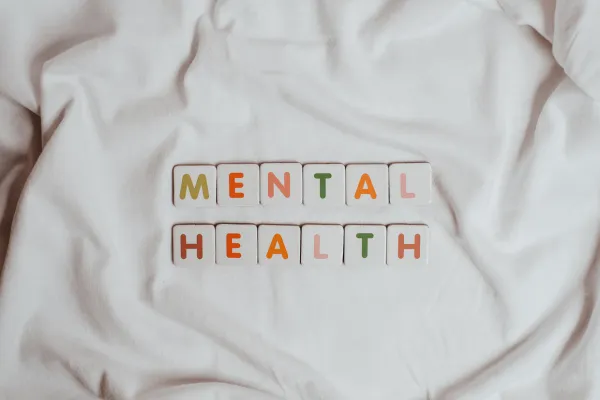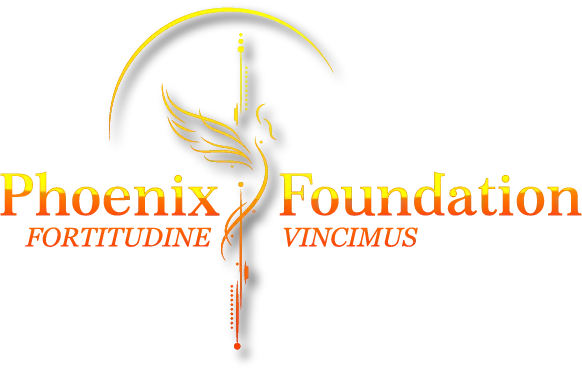HAVE INQUIRIES?
Text or Call us now +63 40 520 2223
HAVE INQUIRIES?
Text or Call us now +63 40 520 2223
We share expert advice, personal stories of resilience, mental health tips, and updates on our latest initiatives.

Energy and Mental Health: How to Recharge Your Mind and Body for Wellness
What Is Our Energy in Mental Health?
When you think about mental health, you probably think about emotions, thoughts, or behaviors. But have you considered how your energy plays a role? Energy fuels us—it’s what drives our mood, motivation, and ability to think clearly. Without it, even the simplest tasks can feel insurmountable.
For mental health advocates, wellness seekers, and trauma survivors alike, understanding how energy impacts mental well-being can be crucial. From managing daily emotional fluctuations to addressing long-term trauma-related energy depletion, developing self-awareness about your energy can be a game-changer for mental wellness.
This blog explores the connection between energy and mental health, including actionable strategies for restoring balance and the role of therapies like acupuncture in supporting the process.
The Link Between Energy and Mental Health

Have you noticed that when you’re physically drained, your mental well-being is compromised? That’s no coincidence. Energy and mental health are deeply intertwined. Here’s how your energy levels affect your mind:
Mood: Low energy often leads to irritability, sadness, or feelings of overwhelm. On the flip side, balanced energy helps us feel calm, content, and emotionally stable.
Motivation: A lack of energy can sap your drive to engage in daily activities, making you feel stuck or unproductive. Restoring energy enables you to take proactive steps in your life.
Cognitive Function: Mental tasks require energy. When depleted, focus, memory, and decision-making abilities tend to suffer.
Trauma survivors, in particular, may experience significant energy depletion. Trauma often taxes the nervous system, leading to chronic fatigue and a heightened fight-or-flight response. Rebuilding energy over time becomes essential for recovery and mental resilience.
How to Cultivate and Manage Energy for Better Mental Health
Here are strategies to help you restore and balance your energy for improved mental wellness:
1. Prioritize Rest and Sleep
Sleep is non-negotiable when it comes to mental health. It’s during deep sleep that the brain restores itself, processes emotions, and rejuvenates energy levels. Make sleep a priority by maintaining a consistent bedtime, avoiding screens before bed, and creating a calming nighttime routine.
2. Fuel Your Body
What you eat has a big impact on your energy and mental health. Nutrient-dense foods—like fruits, vegetables, whole grains, and healthy fats—provide sustainable energy. Avoid excessive sugar and caffeine, which can lead to energy crashes.
3. Mindful Movement
Regular movement, such as yoga or brisk walking, can replenish energy and reduce stress. Exercise releases endorphins, improving mood and increasing physical vitality. Pay attention to workouts that feel restorative rather than depleting.
4. Set Boundaries
Overcommitting and people-pleasing can drain energy, leaving you feeling emotionally and mentally exhausted. Practice saying no and prioritize activities that align with your values and well-being.
5. Breathwork and Meditation
Techniques like deep breathing and mindfulness meditation help calm the nervous system, recharge energy, and improve focus. Start with a few minutes a day to build a habit that reconnects you with your inner calm.
6. Creative Therapies
Engaging in activities like painting, journaling, or playing music can be surprisingly energizing and therapeutic. These avenues help process emotions and provide an outlet for stress.
The Role of Acupuncture in Managing Energy

Acupuncture is a practice rooted in traditional Chinese medicine that focuses on restoring the body’s energy flow, also referred to as “Qi” (pronounced "chee"). The idea is simple yet profound—imbalances or blockages in energy flow can lead to physical and emotional symptoms, including mental health challenges.
Here’s how acupuncture works with energy to support mental well-being:
Balances Energy (Qi): Acupuncture stimulates specific points on the body to release energy blockages and promote balance. This helps regulate mood and improve overall vitality.
Reduces Stress: By calming the nervous system, acupuncture reduces stress hormones like cortisol, facilitating a sense of relaxation and mental clarity.
Replenishes Depleted Systems: Many people with chronic stress or trauma carry an energy deficit. Acupuncture supports the body’s ability to restore lost energy, making it easier to feel more grounded and emotionally resilient.
Improves Sleep and Relaxation: Regular acupuncture sessions have been linked to improved sleep patterns, which is essential for mental recovery and energy renewal.
If you’re curious about trying acupuncture for energy management, speak with a licensed practitioner who can customize treatments based on your specific needs. It’s a gentle yet powerful way to address the mind-body connection.
The Path to Energy-Aware Mental Wellness
Mental wellness is not just about managing thoughts and emotions—it's about managing energy, too. By becoming more aware of your energy levels and practicing strategies to restore balance, you’re positioning yourself for enhanced mental clarity, resilience, and emotional stability.
Whether you’re a trauma survivor reclaiming your energy, a wellness enthusiast exploring mindfulness, or someone seeking better self-care habits, tuning into your energy can transform your mental health.
Take proactive steps—whether it's incorporating mindful rest, eating for sustainable energy, or trying acupuncture—to harness your energy for better mental wellness. Remember, your energy is precious. Learn to protect and cultivate it, and you'll discover a powerful resource for living a balanced and healthier life.
Your Support Can Make a Difference Today.
Your Support Can Make a Difference Today.
The Phoenix Foundation is not staffed to offer
emergency mental health services.
If you need immediate help, please consider the following resources:
The Phoenix Foundation
Varsity Medical Professional Building
8 Varsity Estates Circle NW
3rd Floor
Calgary, Alberta
T3A 2Z3

The Phoenix Foundation is located in the traditional territories of the Niitsitapi (Blackfoot) and the people of the Treaty 7 region in Southern Alberta,
which includes the Siksika, the Piikani, the Kainai, the Tsuut’ina, and the Iyarhe Nakoda. The City of Calgary is also home to the Métis Nation.
Content © Copyright - The Phoenix Foundation
The Phoenix Foundation is not staffed to offer
emergency mental health services.
If you need immediate help, please click on the BUTTON below.
Location
The Phoenix Foundation
Varsity Medical Professional Building
8 Varsity Estates Circle NW
3rd Floor
Calgary, Alberta
T3A 2Z3

The Phoenix Foundation is located in the traditional territories of the Niitsitapi (Blackfoot) and the people of the Treaty 7 region in Southern Alberta,
which includes the Siksika, the Piikani, the Kainai, the Tsuut’ina, and the Iyarhe Nakoda. The City of Calgary is also home to the Métis Nation.
Content © Copyright - The Phoenix Foundation

